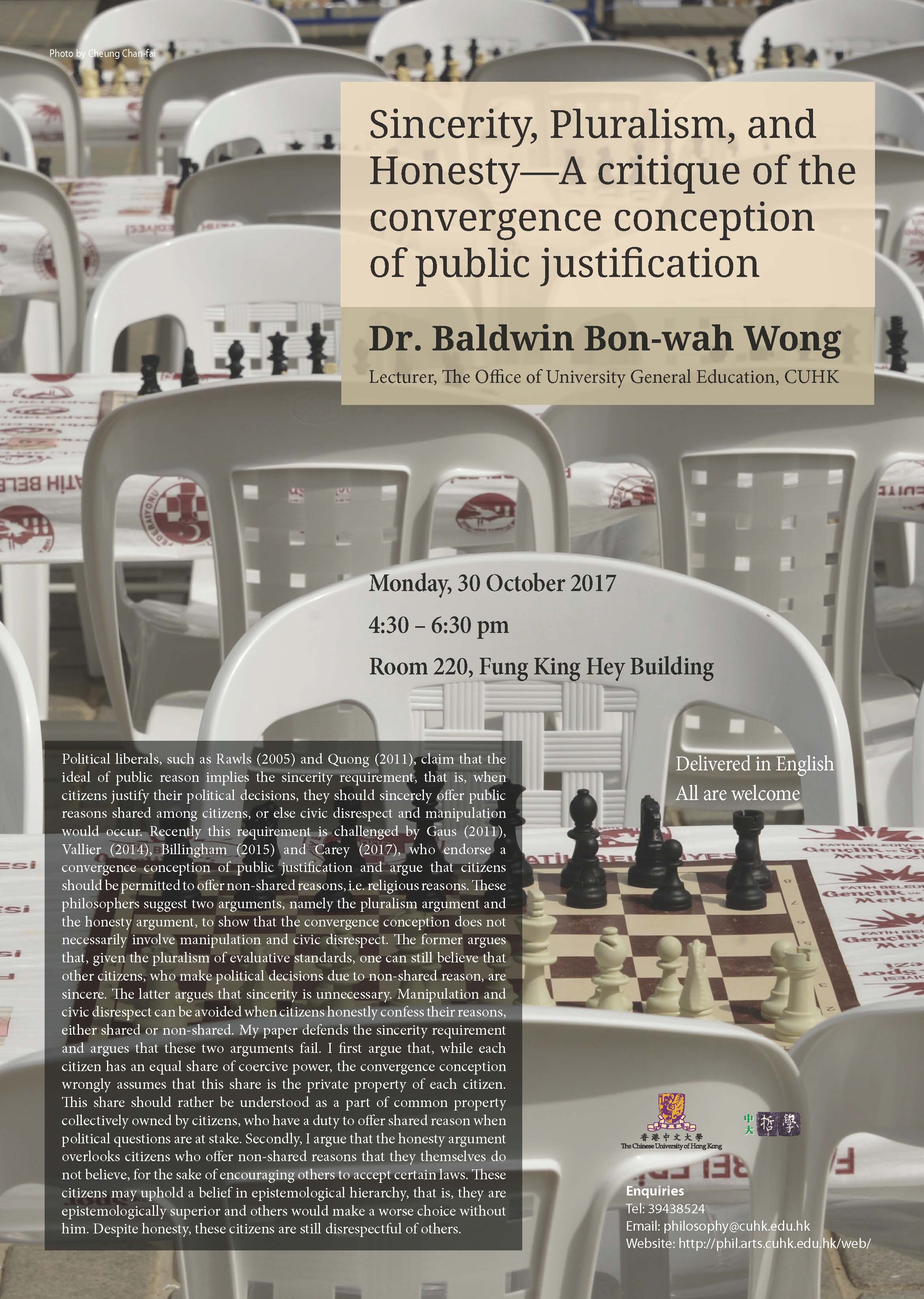Sincerity, Pluralism, and Honesty — A critique of the convergence conception of public justification

Dr. Baldwin Bon-wah Wong, Lecturer, The Office of University General Education, CUHK |
|
4:30 – 6:30 pm |
|
香港中文大學馮景禧樓220室 |
摘要:
Political liberals, such as Rawls (2005) and Quong (2011), claim that the ideal of public reason implies the sincerity requirement, that is, when citizens justify their political decisions, they should sincerely offer public reasons shared among citizens, or else civic disrespect and manipulation would occur. Recently this requirement is challenged by Gaus (2011), Vallier (2014), Billingham (2015) and Carey (2017), who endorse a convergence conception of public justification and argue that citizens should be permitted to offer non-shared reasons, i.e. religious reasons. These philosophers suggest two arguments, namely the pluralism argument and the honesty argument, to show that the convergence conception does not necessarily involve manipulation and civic disrespect. The former argues that, given the pluralism of evaluative standards, one can still believe that other citizens, who make political decisions due to non-shared reason, are sincere. The latter argues that sincerity is unnecessary. Manipulation and civic disrespect can be avoided when citizens honestly confess their reasons, either shared or non-shared. My paper defends the sincerity requirement and argues that these two arguments fail. I first argue that, while each citizen has an equal share of coercive power, the convergence conception wrongly assumes that this share is the private property of each citizen. This share should rather be understood as a part of common property collectively owned by citizens, who have a duty to offer shared reason when political questions are at stake. Secondly, I argue that the honesty argument overlooks citizens who offer non-shared reasons that they themselves do not believe, for the sake of encouraging others to accept certain laws. These citizens may uphold a belief in epistemological hierarchy, that is, they are epistemologically superior and others would make a worse choice without him. Despite honesty, these citizens are still disrespectful of others.
英文主講
歡迎參加




